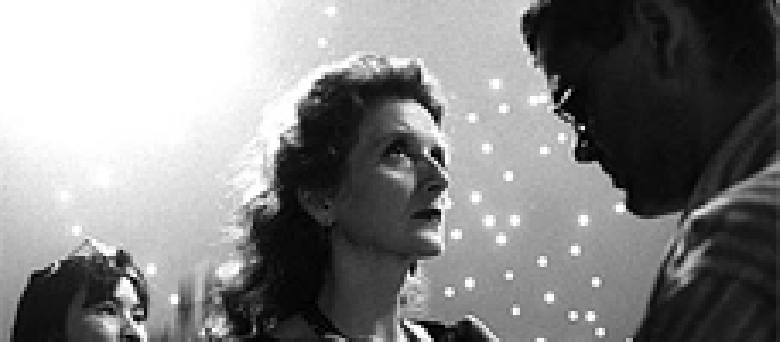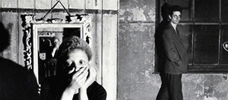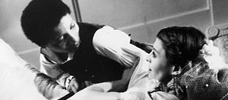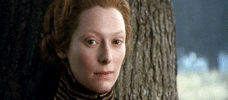A true artist often struggles to toe the line between compromise and independence. This is especially the case in film, as directors must often repress artistic control at the expense of monetary backing or distribution. Sally Potter, who has worked in nearly every established art form, seems to constantly occupy this state of financial uncertainty, often taking years to fund projects in order to ensure that her vision remains intact. Accomplished in dance and choreography, a composer and singer, and most recently a director for the English National Opera, Potter has managed to combine multiple practices and disciplines into her filmmaking, creating a handful of nonetheless dissident works that consistently question ideas and images that are de facto in mainstream cinema.
A darling of film academics, Potter’s films are typically lumped into requisite feminist and/or gender theory classes; this is certainly how I first perceived her work. However, watching these films in succession, it becomes clear how limiting such classification is. Potter herself has commented on the shortcomings of this kind of branding:
It’s more useful, I find, not to use a label at all. What’s the value of the label? Who cares? What’s important is what the film’s actually doing and communicating. I found that in interviews and reviews the term “feminist” could become like a curse after a while. Some people use the prefix “female director” or “feminist director” as opposed to just “director” […] as a way of pigeonholing the work as if that is the only defining aspect of the films. Of course, the investigations of female-ness and politics in the films are a vital part; but so is the image, the framing, the music, the mise-en-scene, and all the aspects of the language of cinema…1
While we have certainly addressed aspects of gender in Potter’s work (it’s nearly impossible not to), her point is well-taken; these films are far more than feminist discourse. As an artiste, Potter employs signature, often striking formal elements, using a variety of film stocks and shooting speeds, abandoning a standard soundtrack in favor of her own compositions, and, perhaps most notably, addressing the distance between the screen and audience. She doesn’t simply want us to sit back and watch—she engages, provokes, and at times requires a dialogue with the viewer.
Tenacity may certainly be one of Potter’s defining qualities as a filmmaker, and I wouldn’t hesitate to add raw nerve to the list. Potter regularly throws herself into her work, in writing, acting, and certainly in acquiring funding for her projects. This method is arguably out of step with the majority of her relatively more prominent contemporaries, and yet it feels natural, almost instinctual on her part. Watching her films one is constantly aware of the exacting presence of their author.
Potter’s filmography is far from extensive (and indeed, who knows how many years will pass before she manages to produce another film), but it is remarkable to know that with each viewing one is witnessing a painstaking process at work—the end result unquestionably belonging to the singular and ingenuous imagination of Sally Potter.
Introduction by Jenny Jediny
1 Widdicombe, Kristy. “The Contemporary Auteur: An Interview With Sally Potter.” 16+ Media Studies Source Guide on Auteur Theory/Auteurs. BFI: London, 20 August 2003. External link ↩
Films
| Thriller | 17 February |
| The Gold Diggers | 17 February |
| Orlando | 17 February |
| The Tango Lesson | 17 February |
| Yes | 17 February |
By Beth Gilligan, Jenny Jediny, and Rumsey Taylor ©2008 NotComing.com
Reviews
We don’t do comments anymore, but you may contact us here or find us on Twitter or Facebook.








